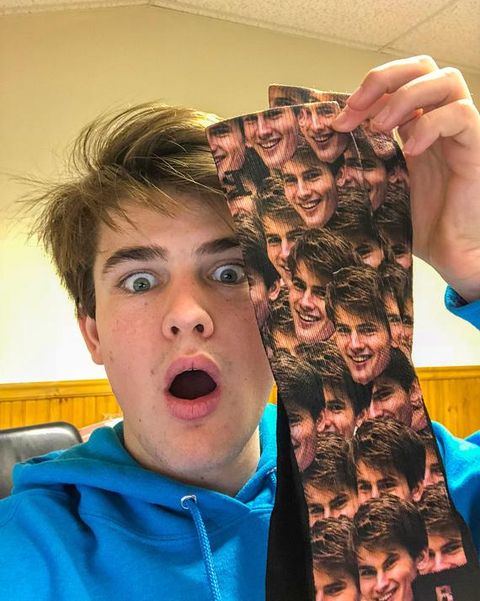
The travel industry is rapidly changing with the advent of new technologies, which make it easier to reach travelers. Increasingly, travellers are looking for personalized experiences that go beyond the traditional experience. They are tech-savvy and spend more time online than ever before. Travel brands must therefore work harder to capture their attention. The most effective way to grab the attention of travellers is digital marketing.
Metaverse
The metaverse's use for tourism is becoming increasingly popular in the travel industry. It gives visitors a realistic, immersive experience and can be used for many purposes. For example, it can help travelers try out different locations before they make a decision to visit them. It can provide event planners with new ways of engaging their customers. For instance, customers can explore different hotels and compare them virtually to see which one suits their preferences. Customers can also view the amenities like gyms and spas to see which hotel offers the best.

VR
VR is an emerging technology that promises to revolutionize travel. VR allows users to experience a live environment in a virtual setting. This gives them a clear picture of the place they are located. VR is already being used by companies to promote tourism services. Google Street View, a new app that allows users to view virtual tours of hotels and restaurants, is an example of how VR can be used to benefit the tourism industry. It allows users take virtual tours at restaurants, clubs, and hotels. This helps travelers plan their vacations and allows them to experience the destination in a different way than they could before.
Augmented reality
The growth of AR/VR technology is being driven by the increasing demand for travel services. To enhance the tourism experience, technology is continually being developed. One of the most promising areas for AR/VR in the travel industry is in navigation. Many travel-related startups have launched products that use VR for travel planning.
Mixed reality
Mixed reality, a new technology that enhances travel experiences, is exciting. Mixed reality can be used to improve test drives, immersive navigation, as well as hotel experiences. It is predicted to grow to $50 billion by 2021.
Airline schedules
There are many reasons to fly by plane if you are looking for a vacation destination. You'll be able to book your vacation ahead of time because vacation travel demand is high. You should be aware that not all flights are available, so it may prove difficult to travel to your preferred destination.

Transformative travel
There is a shift in consumer preferences that is impacting the travel industry. Many people are looking for transformative experiences as a way of expanding their consciousness and spirituality. The shift to experiential tourism has resulted in a huge unmet demand for wellness-based products and sustainable travel. These experiences are essential for the tourism industry to be able meet this demand. These trips are not only good for the body, but also have psychological and emotional benefits.
FAQ
How important is Instagram in the fashion industry?
Instagram has been a popular platform for brands to network with influencers. It's no surprise, as it allows them to reach a large audience.
However, it is not about reaching an audience. Engagement is the key to influencer marketing. It's about building relationships and trust with your followers. This takes time.
It's all about being consistent, reliable. About regularly posting quality content. Answering questions and comments.
It's great for connecting with your fans on Instagram. It doesn't work well when it comes to selling products. Other social media channels are available for this purpose.
What are Gen Z interested in 2022?
The future belongs only to those who are prepared for it. That means understanding where we are going and how we might get there. This means we need to look back more often in order to see the trends shaping our world.
It also involves looking ahead and anticipating new technologies and innovations that will transform our lives and work.
This is why we are here to learn, share knowledge, and help each other solve problems. Because our future is dependent on us. It's our responsibility to ensure a bright future.
It is important to examine the past and plan for the future. We need data to do this. There are lots of data. Data that shows us what young people value now and what they will care about in five-years.
Data that shows them what motivates them, and what frustrates. Data that allows us to understand their priorities and what they don't.
What are the latest consumer trends in tourism?
It is essential to keep ahead of the curve in any industry to be successful. If you don’t consider how consumers act now, then you will be left behind. That's why it's important to watch for emerging consumer trends.
Social media is the biggest trend that affects travel today. Social media allows consumers to share more information about what they do, where they went, and how they feel about it. This means that travelers are becoming increasingly aware of the places they visit and becoming far more vocal about those experiences.
Twitter and Facebook allow users to share photos and videos with their friends and followers. These sites play a significant role in helping us understand destinations. Social media allows us to make better travel decisions by connecting with locals, and learning more about their culture.
Another major shift is the rise of mobile technology. People are spending more time on smartphones and tablets than computers. ComScore claims that smartphone penetration grew from 23% in 2011 to 27% last year. The mobile phone is changing the way we communicate and interact with information. There are apps for almost every aspect of life, including booking flights, ordering food, checking weather forecasts, finding directions, and watching movies.
Mobile technology is revolutionizing the way we travel. From our phones, we can make reservations at restaurants, view maps, read reviews and book hotels. We can check our emails while we wait in line for restaurants or museums and can even listen to music while driving. All these new features allow us to travel more smarter, faster, & more efficiently.
These two big shifts are not the only ones that affect travel. There are also many smaller trends that impact travel. People use their smartphones to locate attractions, events and activities in their area. Apps such as Foursquare and Yelp helped them plan trips based on recommendations from friends. These tools have the potential to revolutionize how we explore and experience cities.
Companies offering services to tourists are increasing in number. These companies offer customized tours, transportation, accommodation, and other services. These companies make it easy for visitors to enjoy the city, without having to plan everything.
Travel marketers have many opportunities to profit from the latest trends, as you can see. However, it takes smart marketing strategies and a good business strategy to recognize which trends apply to your company and which don't.
Statistics
- As experts quabble over the official call, most consumers are already experiencing economic uncertainty: 52% say their household income is unstable, up 36% from three months ago, and 73% have either reduced or maintained their overall spending levels. (junglescout.com)
- and what they are traveling for, with 78% of respondents wanting to impact the community they visit positively.1 Eating & Shopping at Small businesses (americanexpress.com)
- Nearly 30% of consumers have started their holiday shopping, though 55% say rising inflation has altered their gifting and spending plans for 2022. (junglescout.com)
- While 19% of respondents state they didn't travel in the past two years, other families' favorite experiences included: domestic travel (19%), beach resorts (12%), road trips (11%), international travel (10%), staycations (7%), camping (6%), and more.1 (americanexpress.com)
- Just 5% of consumers expect to wait until December to begin shopping, while more than 70% said they'd start before Thanksgiving. (junglescout.com)
External Links
How To
Which trends will affect the travel industry?
The world is changing fast, and the way we do business is also evolving. The digital revolution refers to more than the internet. This is about the impact technology has on all industries.
The industry is set to undergo significant changes over the next few years. Here are five key areas in which the industry will continue its evolution:
-
Customer Experience
-
Technology
-
Mobile
-
Social Media
-
Connectivity
These are just some examples of the way the future of travel looks. But there are many ways these trends will affect our lives. So let's look at each area in turn.
Customers are becoming increasingly savvy and demanding when it comes to booking holidays. In fact, according to Accenture, travelers expect to spend $8 trillion on holiday trips globally by 2020. That means brands must invest heavily in customer service and ensure customers feel valued and appreciated throughout the journey.